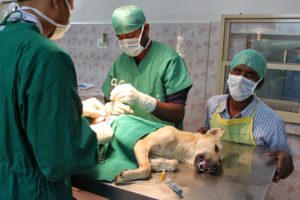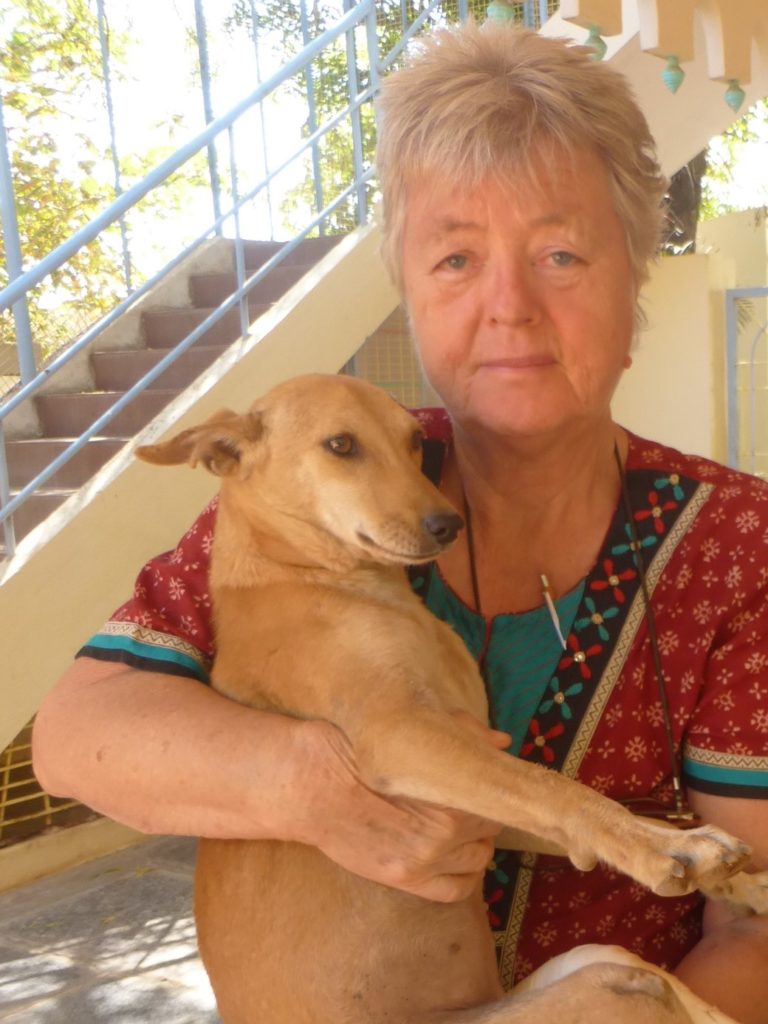Dear Friends,
We can all agree on the fact that ABC/AR (Animal Birth Control / Anti-Rabies) is the only way to control the stray dog population: it is advised by the WH organisation and it is the law in India.
Then the problem starts:
- There are not enough AWO’s (Animal Welfare Organizations) and AH (Animal Husbandry) departments to conduct the surgeries.
- Not enough well trained and caring veterinary surgeons; this results in cruelty, mismanagement and death.
- Not enough and adequate facilities for post operative care.
- Rampant corruption as usual, payments for signatures, etc.
The underlying assumption is that dogs are an unwanted species, a pest, that needs to be controlled by sterilization. People think the ABC program is only for the sake of the human population and rabies control.

 It is our assessment that in India the Government supported, contract based ABC/AR programmes, moving from one area to the next, does not result in a smaller dog population or less suffering. After a large number of dogs are sterilised the project moves to another place, leaving the former area alone, without animal welfare groups and without follow-up. Within one or two years the total dog population grows back because the unsterilised dogs have reproduced and without garbage control there is plenty of food.
It is our assessment that in India the Government supported, contract based ABC/AR programmes, moving from one area to the next, does not result in a smaller dog population or less suffering. After a large number of dogs are sterilised the project moves to another place, leaving the former area alone, without animal welfare groups and without follow-up. Within one or two years the total dog population grows back because the unsterilised dogs have reproduced and without garbage control there is plenty of food.The ABC/AR project as promoted by the government at present is subsidised animal cruelty and abuse. All effort and money is wasted in the long run. Dogs pay the price.
The animal rights/welfare view is that dogs are part of the community with ties to local people, having different functions and they should not be seen as a threat but as a valuable part of daily life. Just like the human population they deserve first aid and shelter when they are in distress. This is even more vital than the ABC/AR program.
SOLUTION?
Community based dog care projects need to be established in every town, village and city. Just like there are government hospitals for people everywhere, the Animal Husbandry hospitals need to change course and be assisted by AWOs. At present they are only serving the bio industry and the owners of food animals.
Every AH hospital needs to provide:
- Free medical care for the local street dogs at the in- and outpatient departments of their clinic/shelter.
- Rescue of dogs in distress/cruelty or accidents, and ambulance service.
- Free lifesaving surgeries for dogs after accidents, cancer, amputations, pinning of fractures, etc.
- Lifetime care for those dogs that cannot be returned to their territory or owner.
- Veterinarians have to be trained to serve and respect the lives of all animals.
Karuna Society has been implementing the ABC/AR program for the last 15 years from one local base. Because of the new dogs entering the area there is never an end to the ABC surgeries. It cannot be stopped as the population would grow back. Garbage control is a must to prevent more dogs entering the area.
It is our experience that only an extensive local and continuing ABC program reduces the number of pups being born; there are less distemper/parvo cases, less accidents, less cruelty cases and more willingness from the local population to bring sick animals for free treatment. In the early years the kennels and rooms in our shelter were always overcrowded. Now there are sometimes empty kennels and less permanent dogs.
The lives of the dogs in our area has much improved: they fight less for females and for food and are accepted by the local communities as there is less fear of Rabies and less overcrowding. We are also working with the local Forest Department regarding hunting in the local forest area for which packs of dogs are used and many times they are attacked and injured by the wild boars.
CONCLUSION
Only a community based animal birth control program, locally based, including free medical care and inpatient facilities can result in a rabies free, healthy dog population where human and animal interests are equally taken into account.
Clementien Pauws-Koenegras


